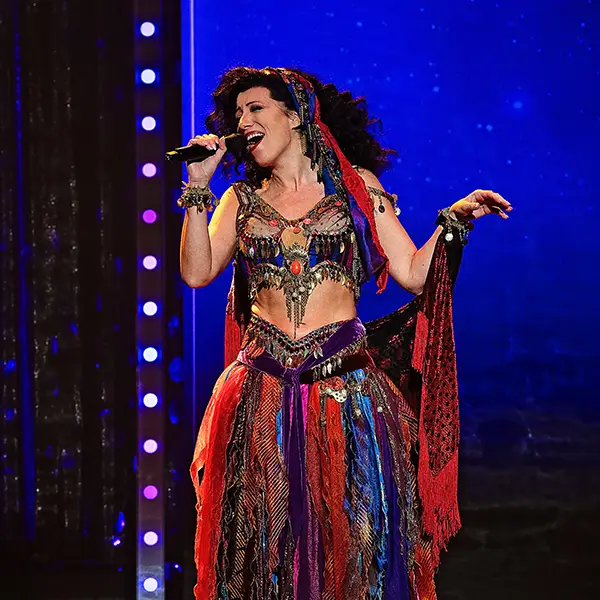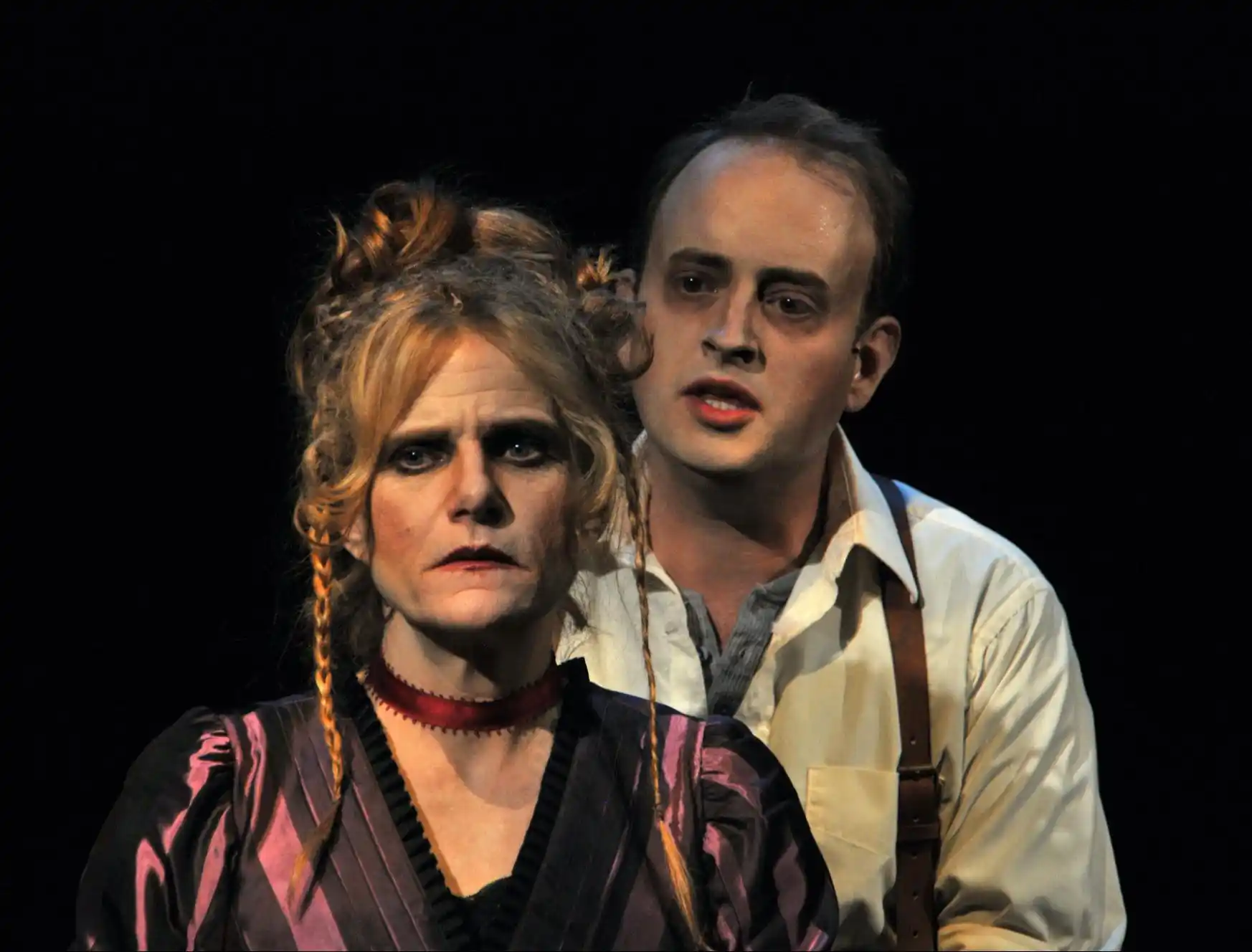

Work alongside Professionals
Ours is a challenging yet rewarding program intended to prepare the successful candidate for a career in the professional world of theatrical design. We believe that superlative design lies in interesting and unique interpretations of the play, expressed through strong, evocative visuals. Therefore, a large portion of the training is focused on dramaturgical research and conceptual investigation. Ideal student work demonstrates intellectual and emotional connection to the source material and artistic self-expression of that connection.
The MFA Design Program at UTK recruits students for enrollment in the Fall of even numbered years. Our next recruitment cycle will be for the Fall of 2026. Online application is encouraged after receiving an informal offer from the program.
Student Work
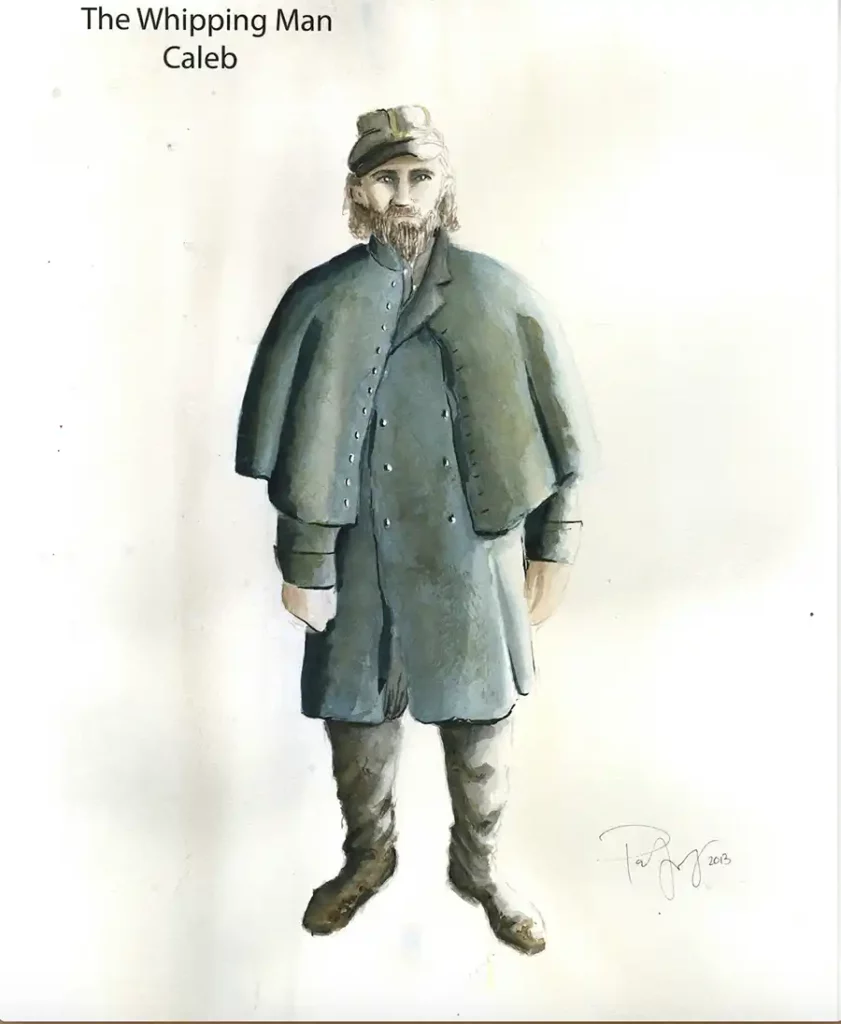
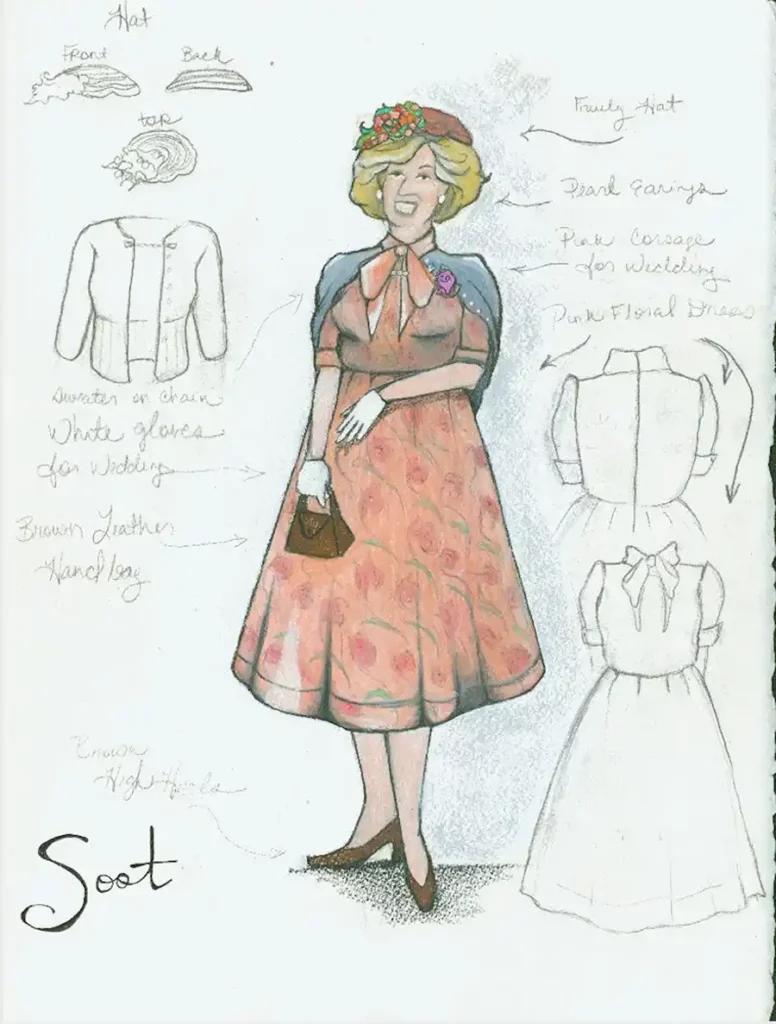
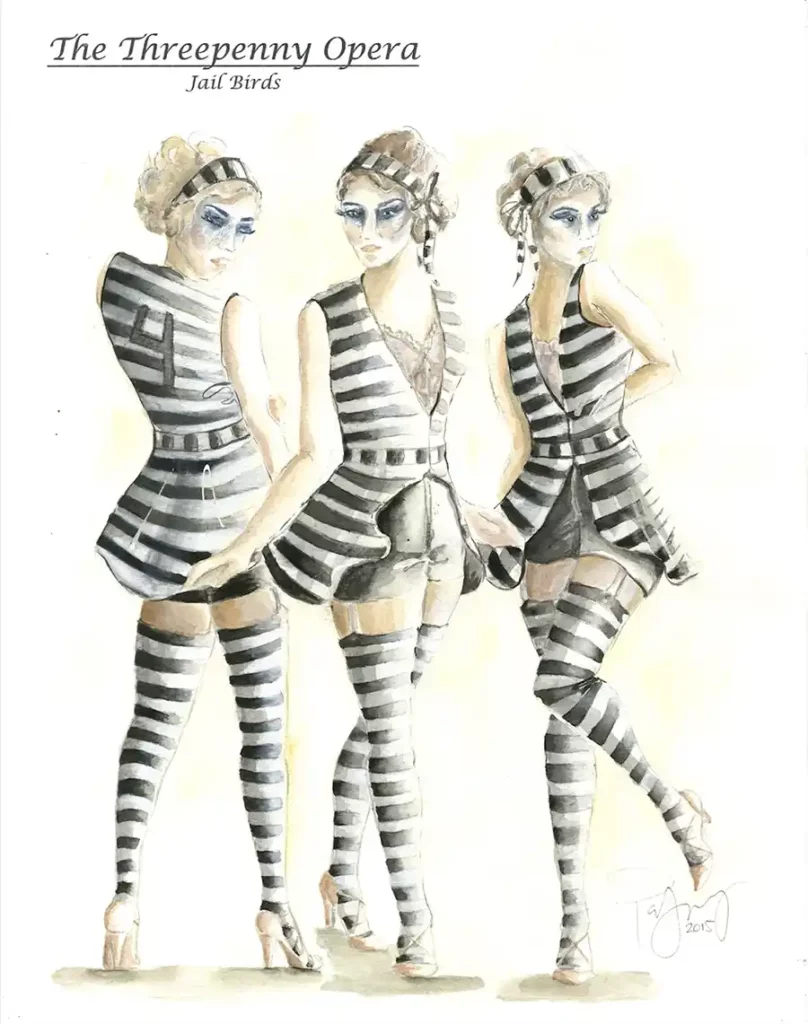
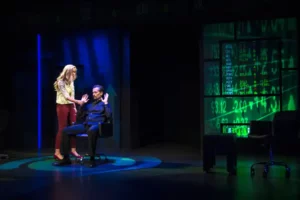
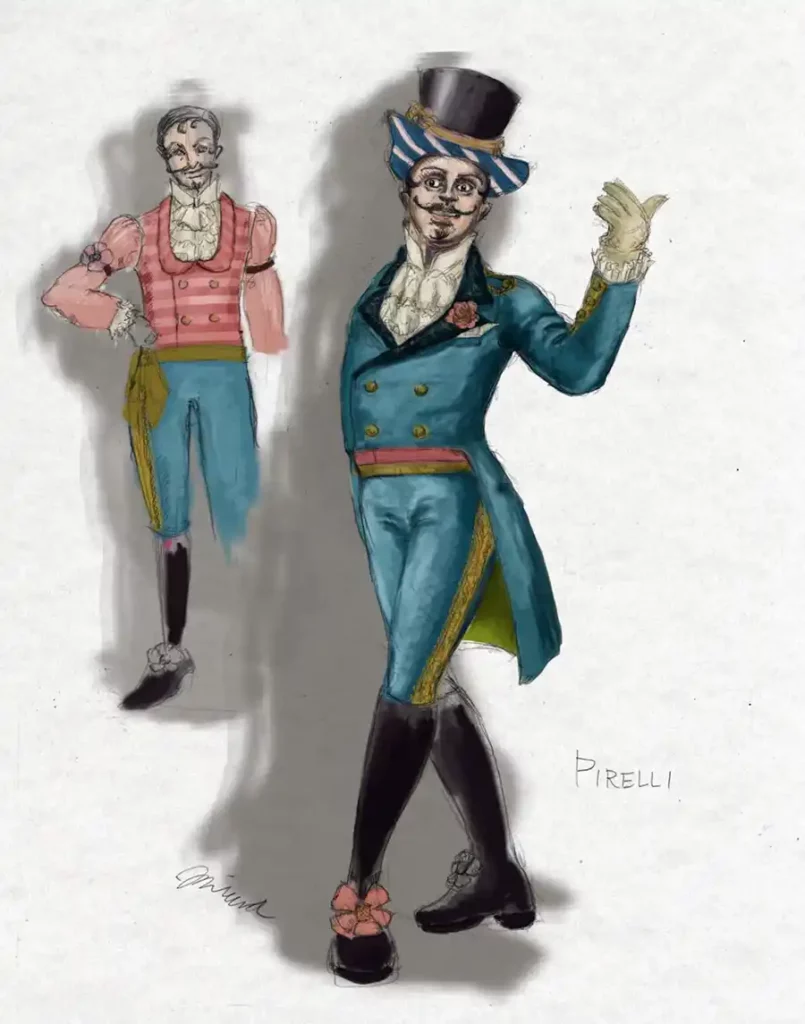
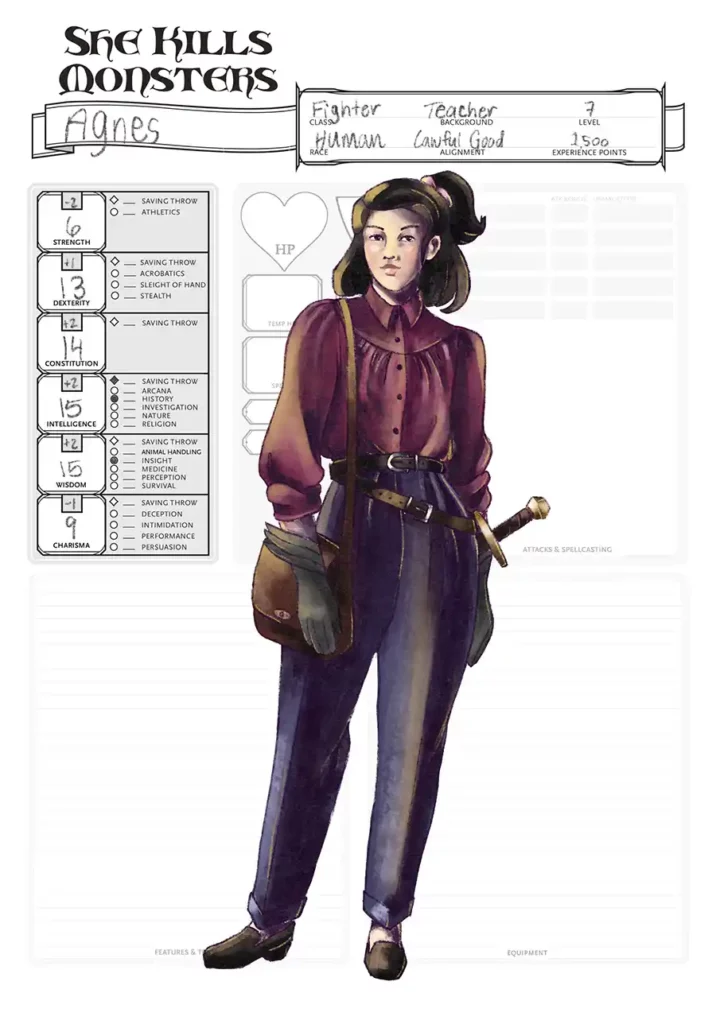
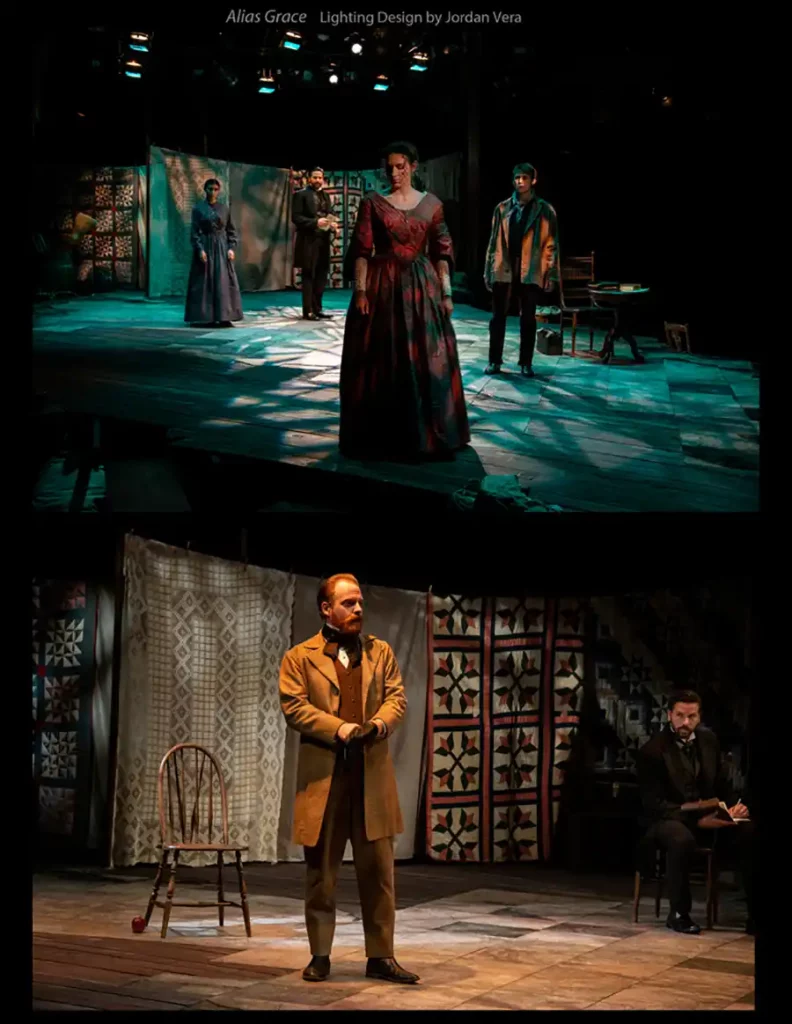
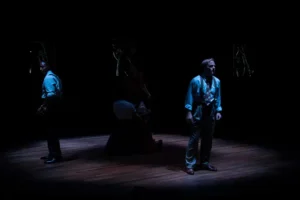
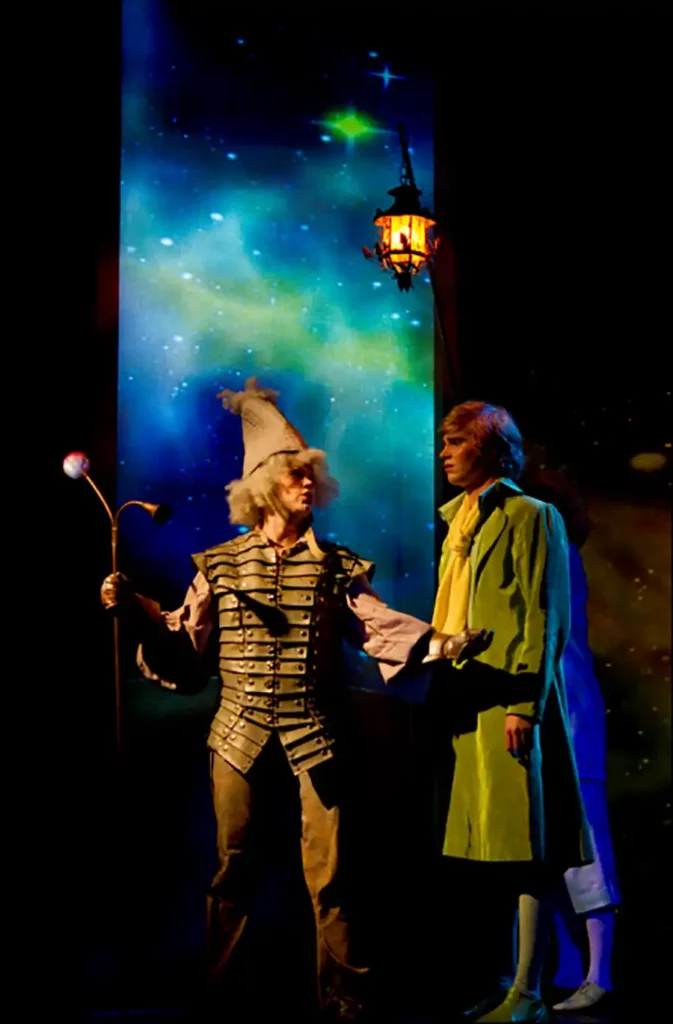
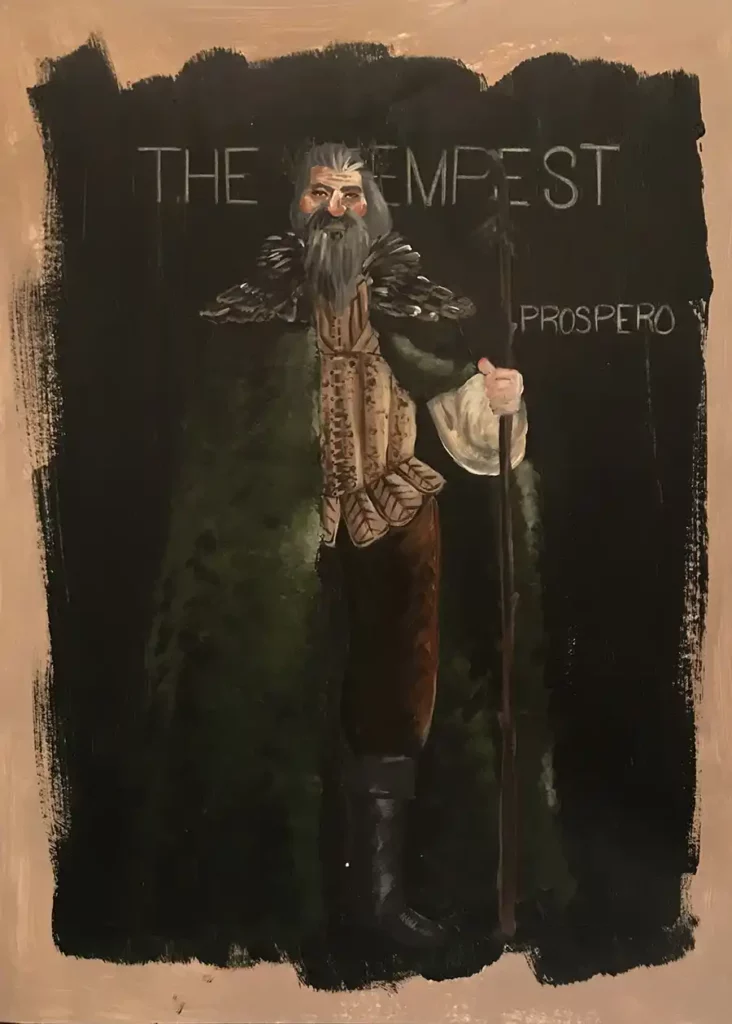
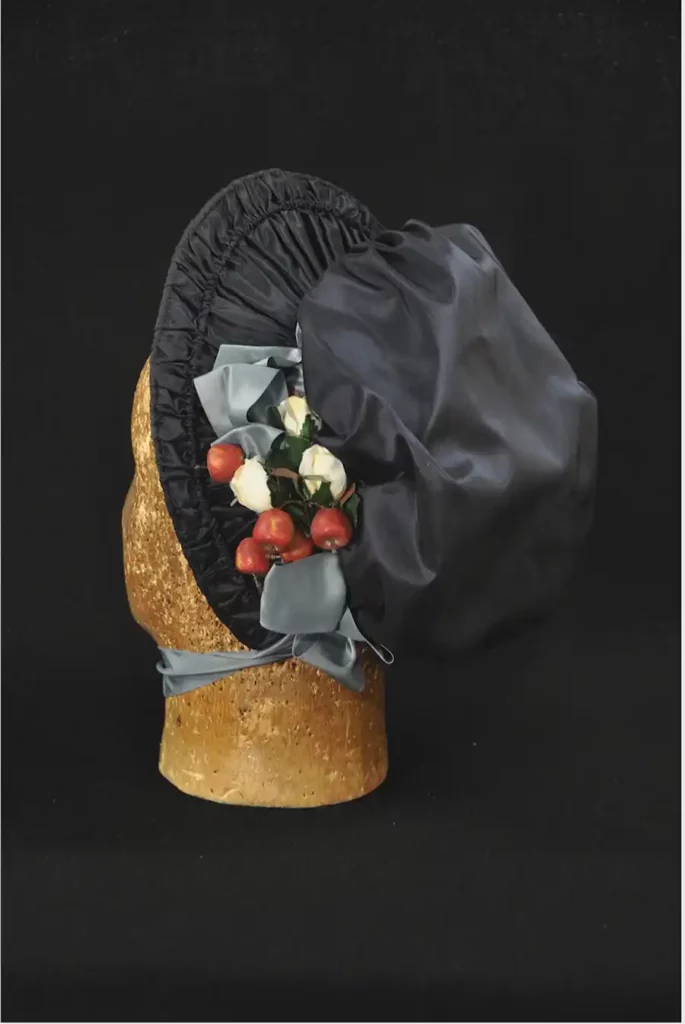
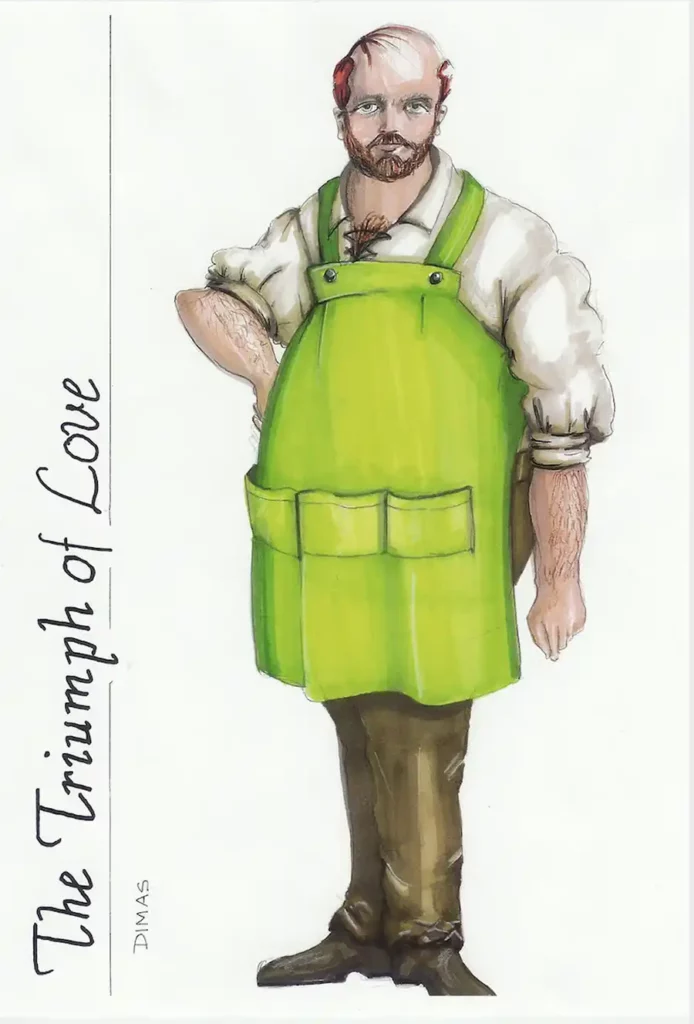
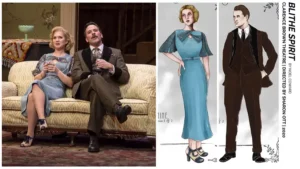
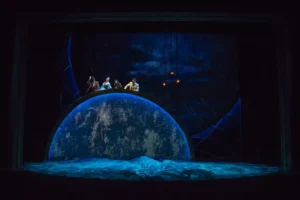
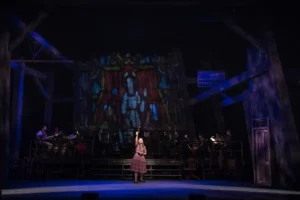
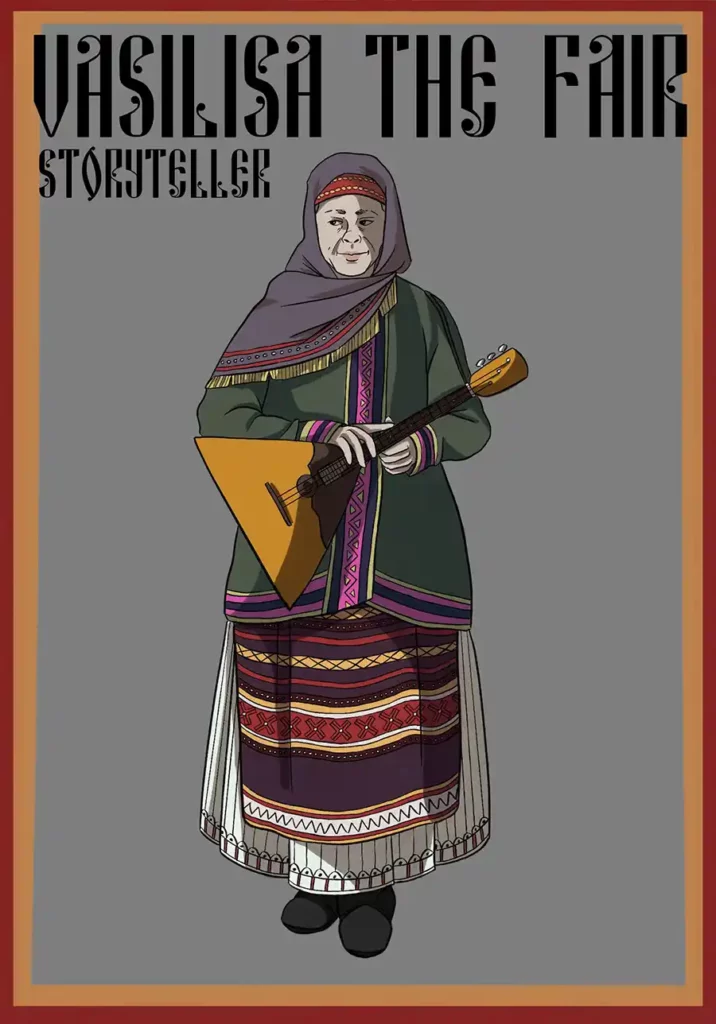
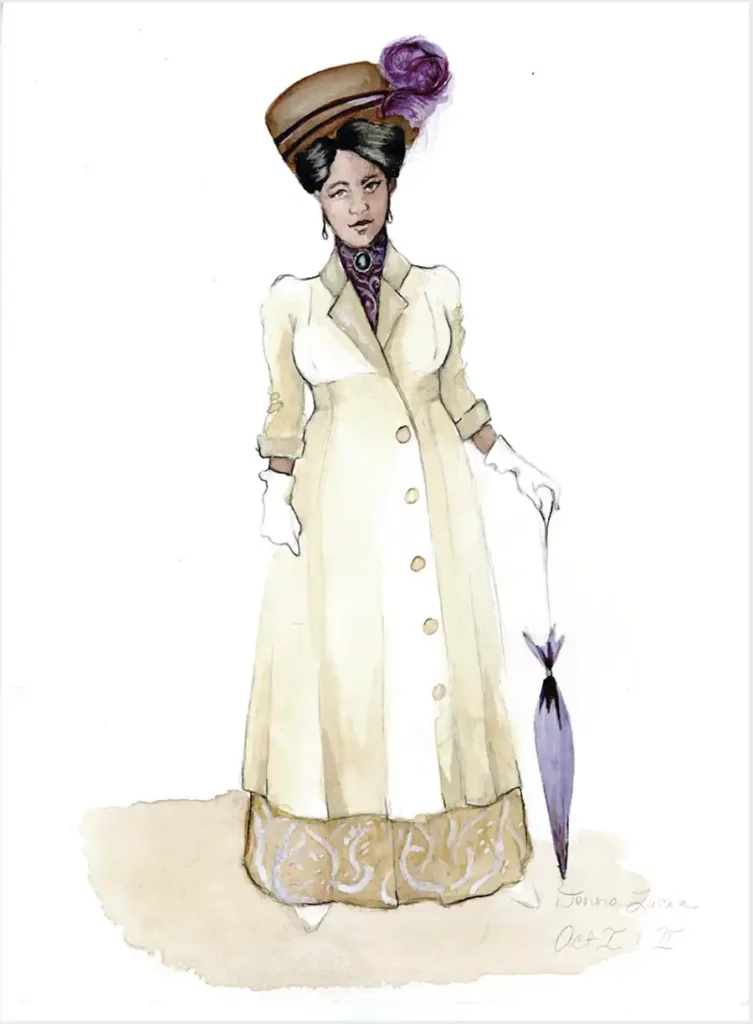
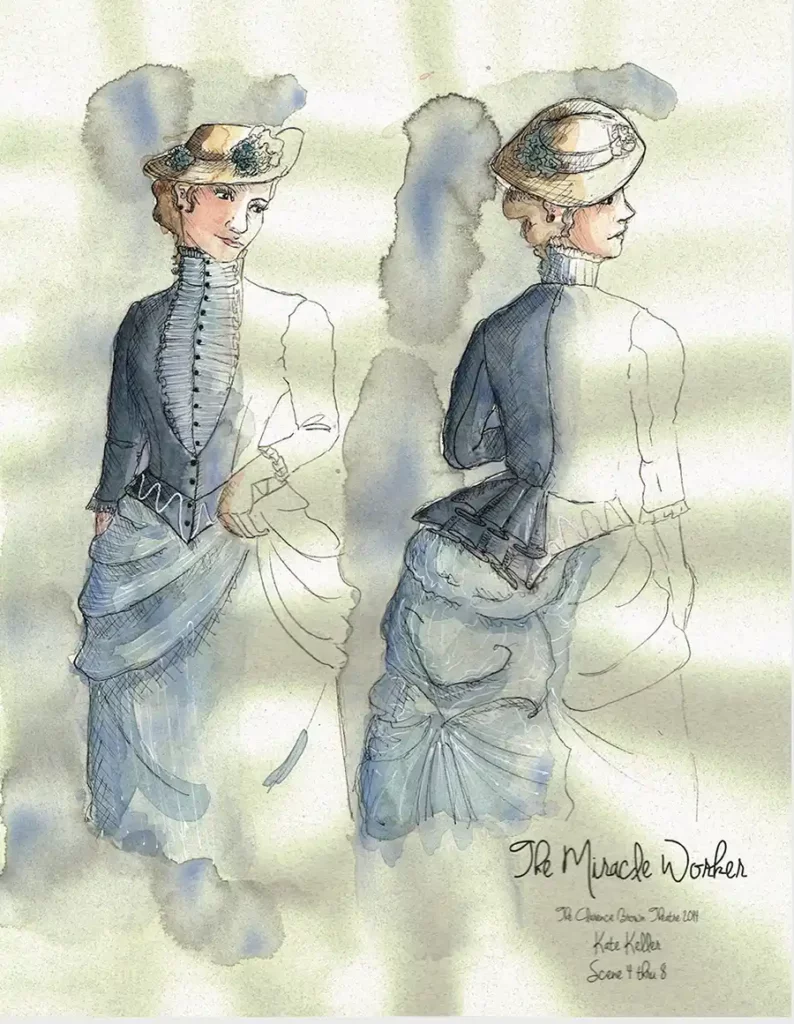
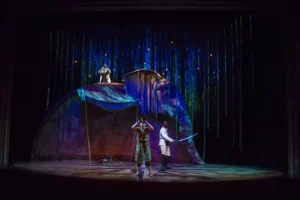
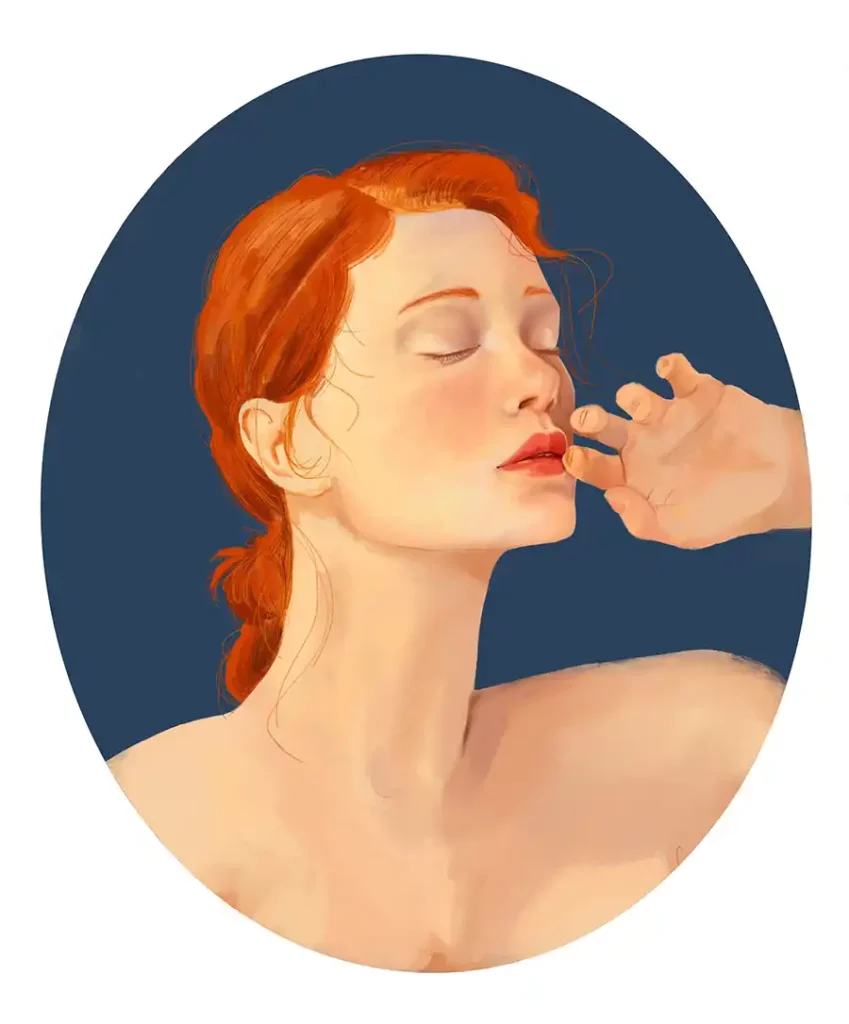
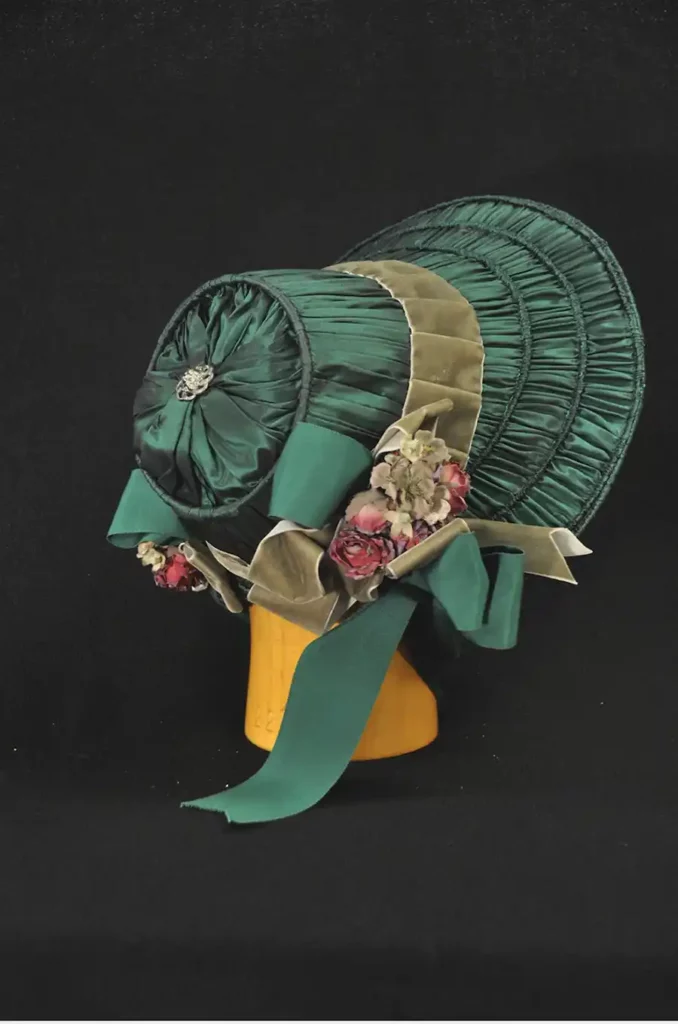
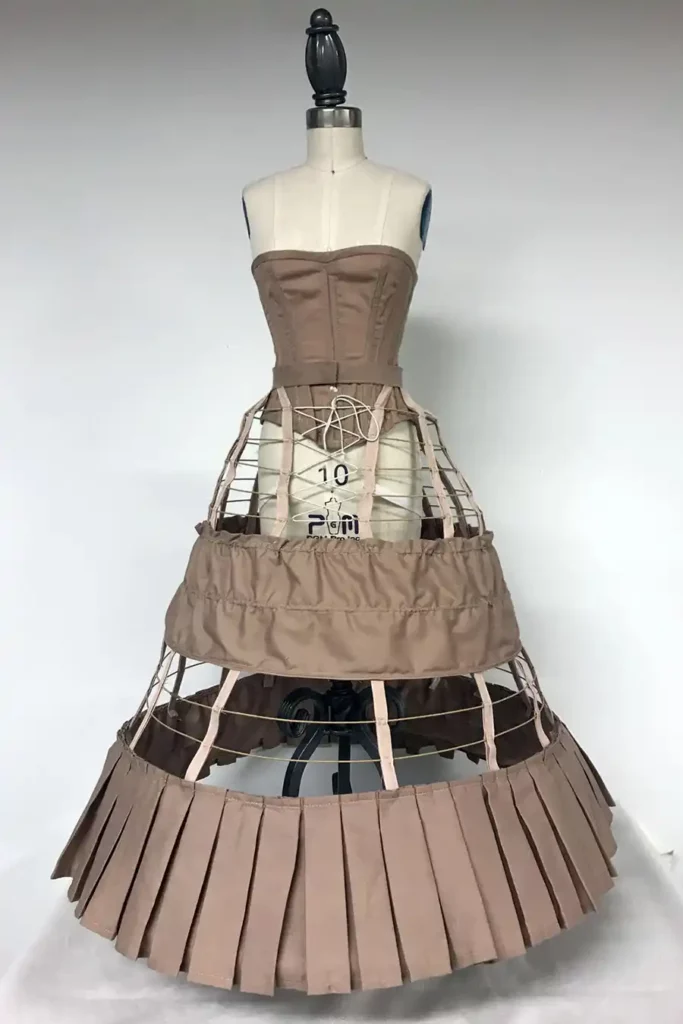
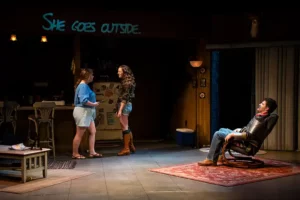
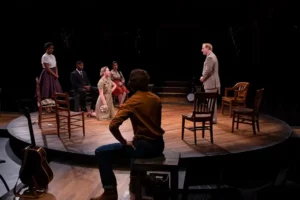
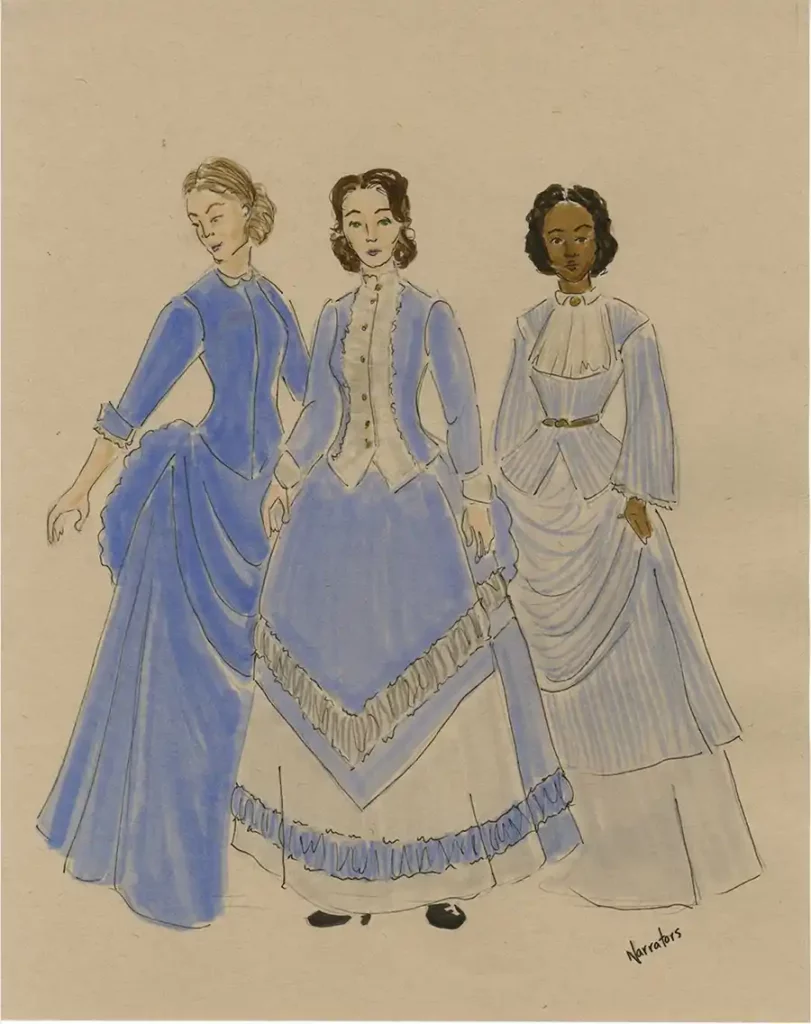
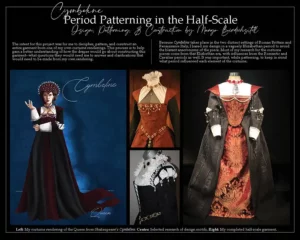
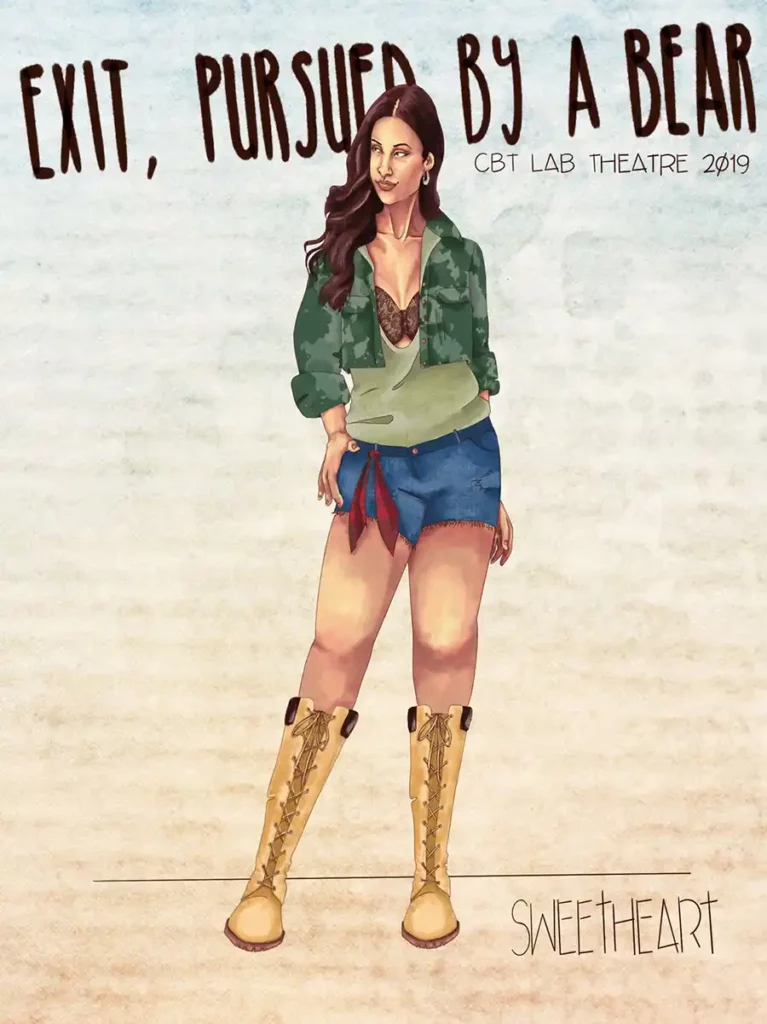
Student Awards, Costume Design
2020s
2025
SETC Graduate Costume Design Awards
Tori Niemiec (The House That Will Not Stand 1st)
Matthew Carl (Failure: A Love Story 2nd Place)
2023
SETC Graduate Costume Design Awards
Max Hromek (MURDER ON THE ORIENT EXPRESS Honorable Mention)
Alex Heder (ADAPTIVE RADIATION Third Place)
Kaelyn Williams (MEN ON BOATS Second Place)
USITT Zelma H. Weisfeld Award
Max Hromek
2022
SETC Graduate Costume Design Awards
Max Hromek (DON QUIOXTE Honorable Mention)
SETC Costume Technology
Max Hromek Third Place
2021
SETC Graduate Costume Design Awards
Margo Birdwhistell (THE HOUSE THAT WILL NOT STAND Second Place)
Max Hromek (THE RESISTIBLE RISE OF ARTURO UI Third Place)
SETC Graduate Costume Crafts Awards
Helen Garcia-Alton (WHITE PLAGUE Honorable Mention)
2020
SETC Graduate Costume Design Awards
Margo Birdwhistell (BLITHE SPIRIT Second Place)
2010s
2019
USITT Zelma H. Weisfeld Award
Erin Reed
USITT Young Designers Forum
Erin Reed
SETC Ready to Design Award
Erin Reed (Triad Stage)
2018
SETC Graduate Costume Design Awards
Erin Reed (PETER AND THE STARCATCHER First Place)
2017
SETC Graduate Costume Design Awards
Olivia Trees (THE CRUCIBLE Honorable Mention)
2016
SETC Graduate Costume Design Awards
Olivia Trees (A LESSON BEFORE DYING First Place)
SETC Ready to Work Award
Olivia Trees (Triad Stage)
2015
SETC Graduate Costume Design Awards
Joscelyne Oktabetz (SHOCKHEAD PETER Honorable Mention)
Poua Yang (THREEPENNY OPERA Third Place)
Oliva Trees (A SHAYNA MAIDEL First Place)
SETC Costume Crafts and Technology Award
Poua Yang (Mary Stuart ½ scale Elizabethan Dress First Place)
SETC Ready to Work Award
Joscelyne Oktabetz (Lexington Children’s Theatre)
2014
SETC Graduate Costume Design Awards
Poua Yang (MARY STUART First Place)
2013
SETC Graduate Costume Design Awards
Miwa Ishii (SWEENEY TODD Second Place)
SETC Ready to Work Award
Miwa Ishii (Triad Stage)
2012
SETC Graduate Costume Design Awards
Miwa Ishii (MADWOMAN OF CHAILLOT Second Place)
2011
SETC Graduate Costume Design Awards
Arlene Felipe (ELECTRA Third Place)
SETC Costume Crafts and Technology Award
Kyra Beanland (Dancing Boy Puppet Second Place)
2010
SETC Graduate Costume Design Awards
Kyra Beanland (LITTLE SHOP OF HORRORS Honorable Mention)
Elizabeth Aaron (CHARLEY’S AUNT Second Place)
SETC Ready to Work Award
Kyra Beanland (Assisting Jennifer Caprio on SUPERMAN)
2000s
2009
SETC Graduate Costume Design Award
Eric Abele (THE TRIUMPH OF LOVE First Place)
Elizabeth Aaron (THE MARRIAGE OF BETTE AND BOO Second Place)
SETC Costume Crafts and Technology Award
Eric Abele (Tyrannosaurus foam Puppet Second Place)
SETC Ready to Work Award
Eric Abele (Hangar Theatre)
2007
SETC Graduate Costume Design Award
Emily Strickland (THE BIRDS First Place)
2006
SETC Graduate Costume Design Award
Felia Davenport (THE TROJAN WOMEN Second Place)
Nicole Smith (THE CUNNING LITTLE VIXEN First Place)
2005
USITT Zelma H. Weisfeld Award
Clinton Odell
2004
SETC Costume Crafts and Technology Award
Leah Barnes (Cat Puppet First Place)
2003
SETC Graduate Costume Design Award
Clinton Odell (THE BALCONY First Place)
2002
SETC Graduate Costume Design Award
Courtney Burt (THE TEMPEST Honorable Mention)
Masha Kamyshkova (THE THREE SISTERS Third Place)
Jessica Wegener (OKLAHOMA First Place)
2001
SETC Graduate Costume Design Award
Masha Kamyshkova (INHERIT THE WIND Second Place)
Courtney Burt (HEARTBREAK HOUSE First Place)
2000
SETC Graduate Costume Design Award
Masha Kamyshkova (THE GRAPES OF WRATH Second Place)
1990s
1998
USITT Zelma H. Weisfeld Award
Tim Dial
SETC Graduate Costume Design Award
Melanie Starnes (THE SEAGULL First Place)
Allison Steadman (ALICE THROUGH THE LOOKING GLASS Second Place)
1997
SETC Graduate Costume Design Award
Tim Dial (SHADOW OF THE VAMPIRE Third Place)
Melanie Starnes-Small (KING LEAR Second Place)
Tim Dial (A SERVANT OF TWO MASTERS First Place)
1995
SETC Costume Design Award
Tommy Macon (A MONTH IN THE COUNTRY Second Place)
1994
ACTF Regional Design Competition
Tommy Macon (THE LITTLE SHOP OF HORROS Regional Winner)
SETC Costume Design Award
Kendra Johnson (TREEMONISHA Second Place)
Tommy Macon (THE ROCKY HORROR SHOW First Place)
1993
TCG Most Promising Young Designer Fellowship
Johann Stegmeir
SETC Costume Design Award
Kendra Johnson (AS YOU LIKE IT Second Place)
1992
SETC Costume Design Award
Chrissanthi Diamanti (FAUST First Place)
1980s
1989
SETC Costume Design Award
Johann Stegmeier (CLOUD NINE Third Place)
Margot McNerney (HUNTING COCKROACHES Second Place)
1988
SETC Costume Design Award
Johann Stegmeier (A MAN’S A MAN First Place)
1987
SETC Costume Design Award
Steven Graver (MACBETH First Place)
1986
SETC Costume Design Award
Steven Graver (MAHAGONNY Third Place)
Connie Furr (MAHAGONNY Second Place)
1985
SETC Costume Design Award
Steven Graver (A SERVANT OF TWO MASTERS Second Place)
Connie Furr (A GHOST SONNATA First Place)
ACTF Regional Design Competition
Connie Furr (PETER PAN First Place)
1983
USITT Third Biennial Competition
Marilyn Jensen (ROMEO AND JULIET Purchase Prize)
How to Apply for Your MFA in Costume Design
Step 1
Inform Head of Costume Design, Lauren T. Roark, by email of your interest in applying to the program. An interview and portfolio review will be scheduled. These are required before completing the following steps for admission.
Step 2
In order to be considered for admission, all applicants must:
- Complete the Graduate School Application
- Pay the $60 application fee by credit card or electronic check.
- Upload/Enter the following materials into the Graduate School Application:
- Unofficial transcripts of all prior Undergraduate and Graduate coursework and degree confirmations
- A professional resume.
- A brief essay (2 pages maximum) about your commitment to a life in art, your interest in training, and your creative and career interests.
- Two letters of recommendation.
- Note: GRE exam is not required.
- An interview/portfolio review. Please contact the major advisor in your area of concentration to arrange the interview/portfolio review. (Step 1, above.)
Applicants whose native language is not English must:
- Submit official TOEFL scores directly from ETS to University of Tennessee, 1843, or Submit official IELTS scores directly from IELTS administrator to the Office of Graduate Admissions
Notes
- The MFA Design Program at UTK recruits students for enrollment in the Fall of even numbered years. Our next recruitment cycle will be for the Fall of 2026. Online application is encouraged after receiving an informal offer from the program.
- DO NOT SUBMIT TRANSCRIPTS OR ANY OTHER MATERIAL BY POSTAL MAIL UNLESS REQUESTED TO DO SO. THIS WILL DELAY PROCESSING YOUR APPLICATION.
- For information regarding specific Department of Theatre application materials, or for more information about our Department, please email Director of Graduate Studies, Dr. Gina Di Salvo.
Funding
All MFA in Theatre candidates at UTK receive exceptional financial support. All MFA students in both Acting and Design/Technology receive full tuition waivers plus Graduate Teaching Assistantship (GTA) stipends throughout their training. All receive virtually equal stipends, with amounts varying only slightly according to differences in funding sources.
We are proud of the funding we offer graduates to enable them to focus on their training, and we believe that equal support creates the best basis for collaboration and artistic growth.
The most recent funding per student per year is approximately:
- Out-of-State Tuition Remission: An approximate value of $31,978 per year
- Graduate Teaching Assistantships: Approximately $26,000 per year
(9-month assistantships disbursed over 12 months) - Student Travel: Up to $1500 per year possible; allocated by faculty at their discretion.
- Average Additional Scholarships: $1000-$1200 per year in 2nd and 3rd Years
- Health Insurance: All UTK Theatre MFA students are covered under UTK health insurance at no additional cost.
- Approximate Total Funding Per Year: $51,000
- Approximate Funding Per Three Years: $153,000
The Graduate Teaching Assistantship represents actual employment by the University of Tennessee. As a GTA, you will be responsible for completing 15 hours per week of jobs assigned by your advisor and the department. Duties may include: teaching assistant, teaching, working in the shop related to your area, and advisor research support. Each semester, work hours will be carried out in various ways according to the needs of the department and productions in the Clarence Brown Theatre. We take care to ensure that job duties do not detract from but are in support of training objectives.
Additional Funding:
- Additional fellowships are available through the Graduate School on a competitive basis. Fellowships range from $5,000 to $15,000.
- $2,500 Marian Brown Career Development Fellowships are awarded to two students in each MFA design class in their final semester of training.
- Financial support is provided for the International Study Tour (2nd Year) and the New York Study Tour (1st Year).
- Financial support is available for students who are invited to the National Design Portfolio Review (NDPR) in their third year of study. Students may also apply for funding from the College of Arts and Sciences and the Graduate Student Senate for additional conference travel funding or funding for NDPR.
*All figures are approximate.
Resources
Important MFA Links and Forms
- Director of Graduate Studies: Dr. Gina Di Salvo, 865-974-4069
- University of Tennessee Graduate School
- Accessibility
- Professional Organizations
- External Project Authorization Form
To be filled out and approved by faculty prior to acceptance of any project not sponsored by the department, including projects in and outside Knoxville. This form is also to be used to request funding and travel authorization for any project, conference, assisting, and/or theatre related trip. - MFA Design Reading List
Sample Curriculum
The following is a typical 3-year study program. It can and should be adapted to suit the interests and experience of each individual student.
SEMESTER 1:
- Theatre 501 Intro to Graduate Studies (3)
- Through projects in dramaturgy, students learn research tools and methods for the theatre artist.
- Theatre 503 Elements of Design for the Theatre (3)
- Analysis of the principles of design including visual, structural and emotional relationships.
- Theatre 540 Graduate Studies in Costume Design (3)
- The purpose of this class is to build the student’s working portfolio. Students will develop research, rendering, and conceptualization skills. This course will analyze the principles and theories of costume design for theatrical productions. Students will learn a range of design-related skills, which include drawing the figure and rendering in various media, understanding of design elements such as color, proportion, scale and others, develop a familiarity with costume history, and understand the process of costume development from concept to performance. Repeats 6 semesters.
- Theatre 580 Design Seminar (3)
- In this intensive 3-semester design course, students learn to analyze research, interpret and design productions in a cross-disciplinary environment. Through a series of fast paced projects, semester one is designed to dramaturgically connect the designer to the source material and develop a visual expression of that understanding.
SEMESTER 2:
- Theatre 446 Costume Patterning (3)
- Techniques in making patterns for theatrical costume.
- Theatre 540 Graduate Studies in Costume Design (3)
- The purpose of this class is to build the student’s working portfolio. Students will develop research, rendering, and conceptualization skills. This course will analyze the principles and theories of costume design for theatrical productions. Students will learn a range of design-related skills, which include drawing the figure and rendering in various media, understanding of design elements such as color, proportion, scale and others, develop a familiarity with costume history, and understand the process of costume development from concept to performance.
- Theatre 580 Design Seminar (3)
- In the second semester we will return to the text and embark on a series of projects designed to stimulate creative concept creation and the initial aural and visual images that support your ideas. Each week, through written, oral and visual presentation you will share your bold, innovative concepts with the class. You will be expected to step out of your comfort zone during this semester and present your conceptual ideas clearly and concisely explain how your research and visual aids support the text.
- Theatre 492 Off-Campus Study (1)
- Intensive study NYC trip.
SEMESTER 3:
- Theatre 540 Graduate Studies in Costume Design (3)
- The purpose of this class is to build the student’s working portfolio. Students will develop research, rendering, and conceptualization skills. This course will analyze the principles and theories of costume design for theatrical productions. Students will learn a range of design-related skills, which include drawing the figure and rendering in various media, understanding of design elements such as color, proportion, scale and others, develop a familiarity with costume history, and understand the process of costume development from concept to performance.
- Theatre 547 Painting and Dyeing (3)
- Fibers, dyes and dye processes; color matching and distressing.
- Theatre 580 Design Seminar (3)
- In the third semester, design students explore advanced projects in design including those outside of the traditional theatre setting. Diverse productions, large-scale projects and complex design situations are the primary focus this semester.
- Theatre 584 Photography for the Theatre (3)
- Photographic techniques for shooting live theatrical events under challenging lighting environments and the incorporation of these into a professional portfolio.
- Theatre 587 Computer Aided Rendering for the Theatre (3)
- Computer rendering programs and their use by theatrical designers.
SEMESTER 4:
- Theatre 510 Theatre History (3)
- Intensive study of selected topics in theatre history.
- Theatre 540 Graduate Studies in Costume Design (3)
- The purpose of this class is to build the student’s working portfolio. Students will develop research, rendering, and conceptualization skills. This course will analyze the principles and theories of costume design for theatrical productions. Students will learn a range of design-related skills, which include drawing the figure and rendering in various media, understanding of design elements such as color, proportion, scale and others, develop a familiarity with costume history, and understand the process of costume development from concept to performance.
- Theatre 545 Millinery for the Stage (3)
- Pattern making and construction techniques for hats from antiquity to present.
- Theatre 549 Special Projects in Costume Technology: Corset Making (1)
- Pattern making and construction techniques for historical corsets.
- Theatre 588 Digital Portfolio (3)
- Creating a digital theatrical design portfolio and supporting materials and the exploration of presentation options and standards.
- Theatre 491 Foreign Study (1)
- Intensive study abroad trip.
SEMESTER 5:
- Theatre 540 Graduate Studies in Costume Design (3)
- The purpose of this class is to build the student’s working portfolio. Students will develop research, rendering, and conceptualization skills. This course will analyze the principles and theories of costume design for theatrical productions. Students will learn a range of design-related skills, which include drawing the figure and rendering in various media, understanding of design elements such as color, proportion, scale and others, develop a familiarity with costume history, and understand the process of costume development from concept to performance.
- Theatre 549 Special Projects in Costume Technology: Advanced Patterning (3)
- Individualized studies in costume technology in theater production. This semester the focus will on advanced patterning techniques for the stage.
- Theatre 599 Project in Lieu of Thesis (6)
- Culminating project proposed by student. Includes produced production/performance/exhibit and written thesis, or In-depth research in a topic of specific interest to the student, culminating in a paper or project.
- Elective (3)
SEMESTER 6:
- Theatre 540 Graduate Studies in Costume Design (3)
- The purpose of this class is to build the student’s working portfolio. Students will develop research, rendering, and conceptualization skills. This course will analyze the principles and theories of costume design for theatrical productions. Students will learn a range of design-related skills, which include drawing the figure and rendering in various media, understanding of design elements such as color, proportion, scale and others, develop a familiarity with costume history, and understand the process of costume development from concept to performance.
- Theatre 542/ 557 Period Styles (3)
- Study of period styles and how all aspects of architecture, clothing, music and light are connect throughout history.
- Theatre 549 Special Projects in Costume Technology: Advanced Patterning (3)
- Individualized studies in costume technology in theater production. This semester the focus will on advanced patterning techniques for the stage.
- Theatre 599 Project in Lieu of Thesis (3)
- Preparation of marketing materials, portfolio, and catalog of individual work produced while in the program, culminating in a formal presentation and oral defense.
- Elective (3)
SUGGESTED ELECTIVE COURSE MENU:
- History of Art, History of Opera, Music Theory/ Technology, Music Composition, Music History, Dramatic Literature and Criticism, Renaissance Drama, Modern Drama, Contemporary Drama, Shakespeare, Drama of the Restoration and 18th Century, Photography, Costume Design, Lighting Design, Sound Design, Media Design, Advanced Theatre Technology.
Equipment Requirements
All Graduate Students in the MFA Theatre Design Program are required to have a computer, software, and other equipment, prior to their use in programmatic classes. As designers in the theatre, these items are standard and essential, and will allow for success in your chosen field.
The department of theatre has a dedicated iMac computer lab that is accessible by graduate and undergraduate students. However, most individual work will be done in provided studio workspaces, in tech, at home, and while traveling. The dedicated graduate workspaces include peripherals such as plotters, printers (3D and 2D), scanners, engravers, lighting/projection/sound studios, spray booths, and more.
The following list of equipment and software is required by classes in the MFA Program.
These items are to be supplied by the student at the student’s expense.
Laptop, Windows or Apple
- Minimum Requirements: able to run current Adobe Suite, Vectorworks, and Autocad.
- Adobe Suite will be provided to you at no charge while in the program.
- Lighting, Scenic, Sound/Media Students must have Vectorworks, which is free for students.
- Scenic Students must have Autocad (free for students)
- Sound/Media students must have a computer capable of video production.
A Digital Camera capable of using interchanging lenses (required for Fall of the second year).
- Required for Costume, Scenic, and Lighting
- Recommended for Sound/Media
- We are partial to Nikon and Canon, but any good brand will work. Sensor of 20 Megapixel or higher
- A zoom lens or fix focus lenses ranging from 18-200mm
- 2 Memory cards 64gb or higher
- A good quality monopod
iPad and Apple Pencil (required for Fall of the first year).
- Required for Costume, and Scenic.
- Recommended for Lighting and Sound/Media
- Procreate software
- iPad must be 10” or greater (iPad minis will not be allowed for content creation).
Costume Students: Students will be required to purchase high quality art supplies for class projects, as needed. We recommend you start with the following supplies:
- 1 roll of tracing paper/Onion Skin
- Watercolor paper (Arches large sheets of paper- I prefer Cold Press, 140lb or 300lb in natural)
- Set of tube watercolors (Windsor & Newton, Cotman, Grumbacher, Daniel Smith)
- Metal Butcher Tray Paint Palette (I would recommend buying in two sizes)
- Brushes (Round brushes size 40 or 30, and various smaller sizes)
Scenic Students: Be prepared to purchase significant amounts of various art supplies and materials for the building of models, paint elevations, prop sketches, and other work product.
Sound/Media students:
- Flat response studio quality headphones.
- Flash/external drives, no smaller than 128GB
- Sound/Media Students will be provided with a Qlab license at no charge while in the program.
FAQs
How many shows will I design?
Most MFA Costume Design students will design 3–5 realized productions during their time at UTK. Students are expected to work professionally over the summer.
How many total design students are in the program?
There are a maximum of 16 students: 4 in Costume Design, 4 in Lighting Design, 4 in Scenic Design and 4 in Sound and Digital Media, in a student’s first and third year in the program. On alternate years, in a student’s second year, there are two in each area. An incoming class consists of 2 Lighting Designers, 2 Costume Designers, and 2 Scenic Designers, 2 Sound and Media Designers.
How many design students are on assistantship?
All design students are on assistantships.
What does the assistantship cover?
It covers full remission of tuition, an annual stipend of about $26,000.00, and up to $1,500.00 annual travel funding as approved by the faculty. Total average support over three years: more than $161,000.00.
What kind of expenses will I incur in this program?
- Books, passport, computer supplies (paper and ink), and any travel costs that exceed $1,500.00 per year.
- Please see our resources for technology and art supplies to be provided by the student, at the student’s expense.
Does the university provide health insurance?
Yes.
How many theatres does the university have?
Three: The Clarence Brown Theatre, a 550-seat proscenium theatre; The Jenny Boyd Theatre, a 300-seat flexible courtyard style theatre; and The Lab Theatre, a 100-seat thrust theatre.
Do the design professors work professionally?
Yes, our faculty designers are nationally and internationally recognized for their work at theatres such as the Utah Shakespeare Festival, Cincinnati Playhouse in the Park, Repertory Theatre of St. Louis, Milwaukee Repertory Theater, The Denver Center Theatre, among others.
What other graduate degree programs are offered?
We offer an MFA in Theatre, with concentrations in Scenic Design, Lighting Design, Costume Design, Sound and Media Design, and Acting.
Will I need to get a passport?
Definitely.
“What a costume designer does is a cross between magic and camouflage. We create the illusion of changing the actors into what they are not.”
—Edith Head


